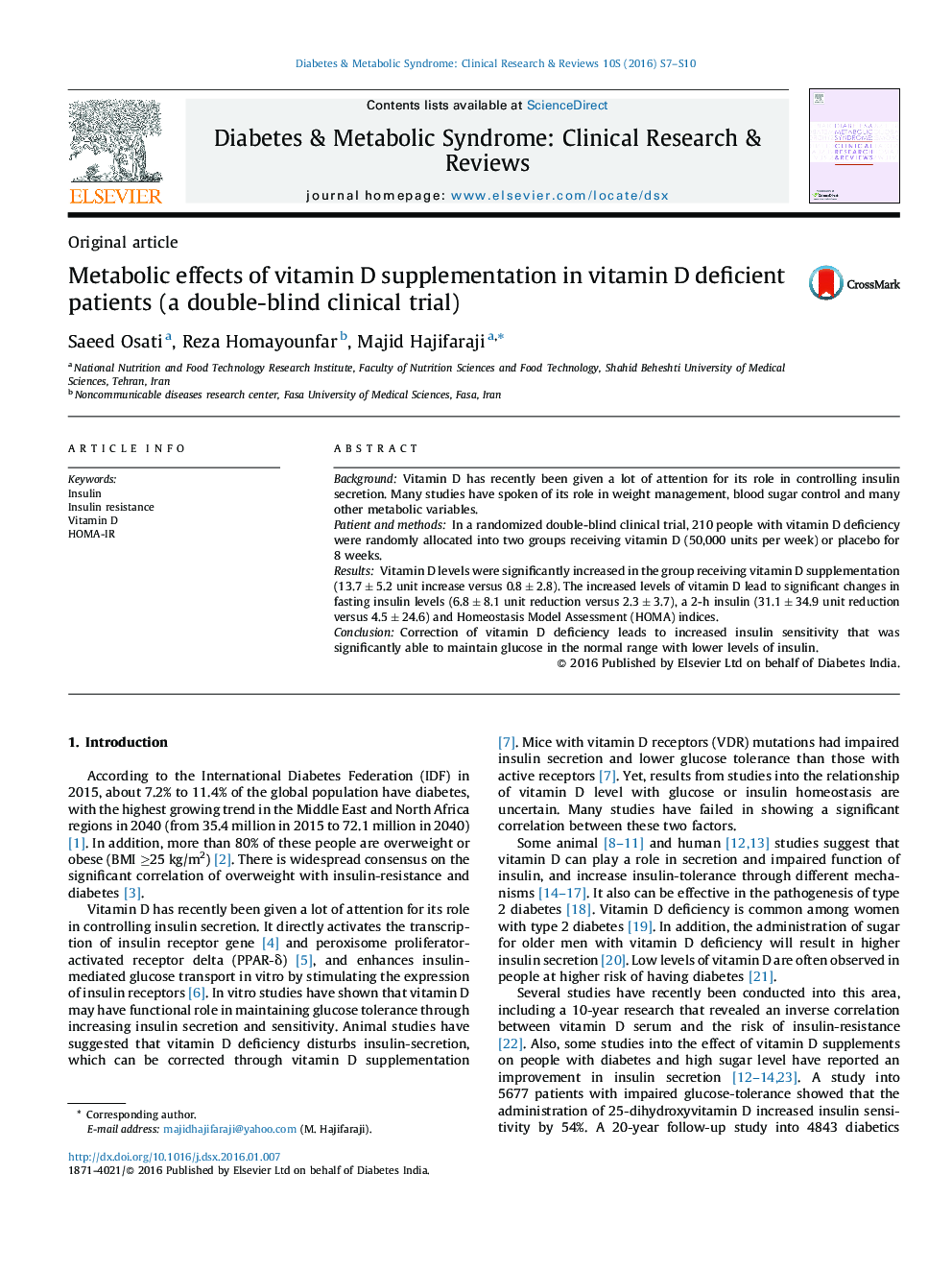| کد مقاله | کد نشریه | سال انتشار | مقاله انگلیسی | نسخه تمام متن |
|---|---|---|---|---|
| 2909789 | 1174588 | 2016 | 4 صفحه PDF | دانلود رایگان |
BackgroundVitamin D has recently been given a lot of attention for its role in controlling insulin secretion. Many studies have spoken of its role in weight management, blood sugar control and many other metabolic variables.Patient and methodsIn a randomized double-blind clinical trial, 210 people with vitamin D deficiency were randomly allocated into two groups receiving vitamin D (50,000 units per week) or placebo for 8 weeks.ResultsVitamin D levels were significantly increased in the group receiving vitamin D supplementation (13.7 ± 5.2 unit increase versus 0.8 ± 2.8). The increased levels of vitamin D lead to significant changes in fasting insulin levels (6.8 ± 8.1 unit reduction versus 2.3 ± 3.7), a 2-h insulin (31.1 ± 34.9 unit reduction versus 4.5 ± 24.6) and Homeostasis Model Assessment (HOMA) indices.ConclusionCorrection of vitamin D deficiency leads to increased insulin sensitivity that was significantly able to maintain glucose in the normal range with lower levels of insulin.
Journal: Diabetes & Metabolic Syndrome: Clinical Research & Reviews - Volume 10, Issue 2, Supplement 1, April–June 2016, Pages S7–S10
